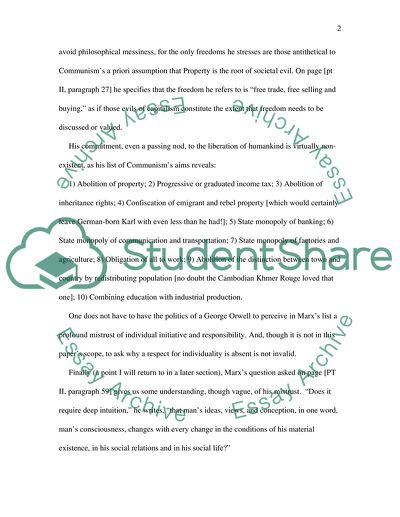Cite this document
(“Compare marx's notion of liberation with mill's notion of liberty Essay”, n.d.)
Compare marx's notion of liberation with mill's notion of liberty Essay. Retrieved from https://studentshare.org/miscellaneous/1539747-compare-marxs-notion-of-liberation-with-mills-notion-of-liberty
Compare marx's notion of liberation with mill's notion of liberty Essay. Retrieved from https://studentshare.org/miscellaneous/1539747-compare-marxs-notion-of-liberation-with-mills-notion-of-liberty
(Compare marx's Notion of Liberation With mill'S Notion of Liberty Essay)
Compare marx's Notion of Liberation With mill'S Notion of Liberty Essay. https://studentshare.org/miscellaneous/1539747-compare-marxs-notion-of-liberation-with-mills-notion-of-liberty.
Compare marx's Notion of Liberation With mill'S Notion of Liberty Essay. https://studentshare.org/miscellaneous/1539747-compare-marxs-notion-of-liberation-with-mills-notion-of-liberty.
“Compare marx's Notion of Liberation With mill'S Notion of Liberty Essay”, n.d. https://studentshare.org/miscellaneous/1539747-compare-marxs-notion-of-liberation-with-mills-notion-of-liberty.


